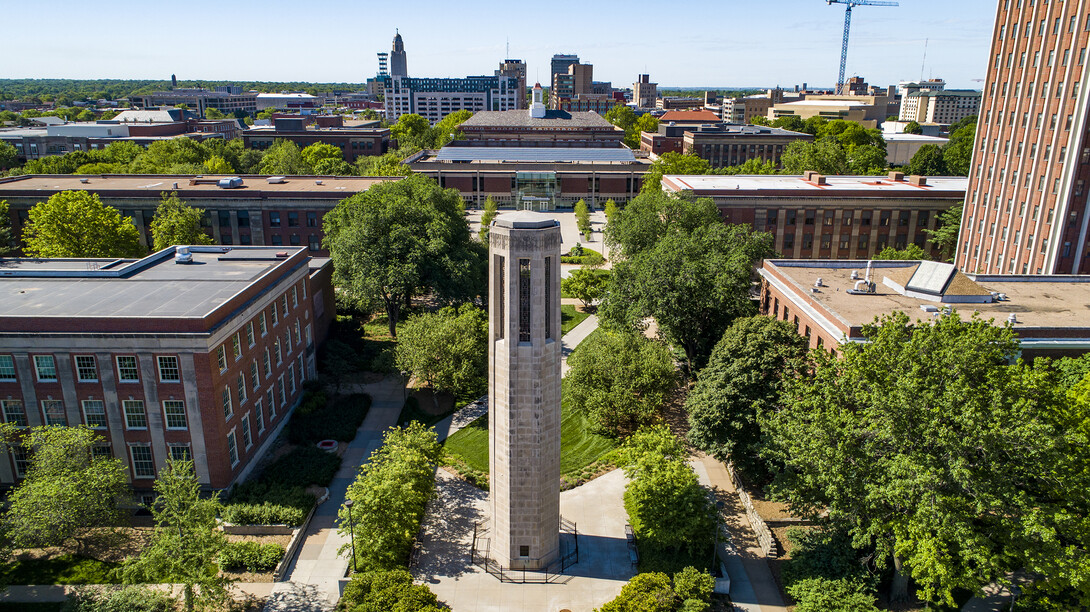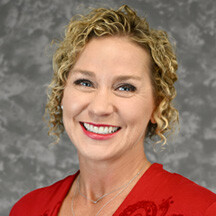
The University of Nebraska–Lincoln’s Law-Psychology Program was the first of its kind when it was founded in 1974, and 50 years later, it remains unique and renowned in the field, with a wide-ranging legacy.
That legacy and the 50th anniversary is being celebrated Sept. 20. Alumni, faculty, students and friends of the program will be on campus for an event featuring panel discussions, a tailgate and cheering on the Husker football team against the Fighting Illini.
The program was founded by Bruce Sales, then an assistant professor of psychology who became the inaugural director. His friendship with Harvey Perlman played a large role in uniting the Department of Psychology and the College of Law to offer a dual-degree program where students earned both a Juris Doctor and a doctorate in psychology.
The Board of Regents approved the new program in March 1974, and it immediately garnered national interest. Sales brought in the first cohort of five students in fall 1974 from more than 400 applications, according to an April 4, 1974, article in the Daily Nebraskan.
Sales was initially moved to start the program when reading the 1969 conclusions of a federal government commission, which found that the social sciences must integrate into the legal system and the legal process.
Sales and Perlman also founded a journal in 1977 for the American Psychology-Law Society, Law and Human Behavior. It is still considered the premiere law-psychology journal, publishing interdisciplinary research concerning the interaction of human behavior and the legal system.
Since admitting those first students, the program now counts more than 160 alumni, working in fields from academia to law practice, industry and policymaking.

The program was expanded in the 1980s by then-director Gary Melton to offer students another option — adding the Master of Legal Studies degree — in addition to their chosen track in their psychology doctoral studies.
“Our program provides a lot of flexibility,” said David Hansen, professor and director of both the Law-Psychology and Clinical Psychology programs. “Our alumni are in a wide variety of places. Some are professors, some in government, some are practicing lawyers or psychologists, some are clinical forensic settings, like psychiatric hospitals or penitentiaries.”
Eve Brank, now professor of psychology and director of the Center on Children, Families and the Law at Nebraska, is among those alumni who were initially attracted to the integrated program and unique opportunities afforded by a dual degree. As a professor, she said those opportunities in and out of the classroom are steadfast.
“The devotion to true psycho-legal scholarship has been consistent because we have this amazing partnership with the law school,” Brank said. “Our students and faculty are able to examine a wide array of psycho-legal areas. We're not limited to just a few areas of the law, but study across the different areas of the legal landscape.”

The complete integration of the psychology and law disciplines in Nebraska’s program is still unusual and brings students from across the country, Hansen said.
“There are very few that have the true dual-degree program,” he said. “We offer a number of courses that are cross listed as both psychology and law classes, and they can be taken by either law students or psychology students. And those, in addition to any kind of research and scholarship and other activities they do, really provide them the opportunity to understand and see and experience the integration of the disciplines.”
The program also shares faculty through affiliate and courtesy appointments, and even though students in the J.D./Ph.D. track typically start with one full year in the College of Law, they’re immediately welcomed into the Department of Psychology through research and social activities and brownbag discussions. Additionally, both psychology and law faculty must serve on a student’s doctoral committee.
The research conducted by both alumni and program faculty has also been impactful. The topics have always been varied, Hansen said, examining subjects such as mediation, family law, the civil justice gap, trial juries, juvenile justice, and discrimination in the legal system.
“Across all levels, faculty, students and alumni have been very involved in leadership in the field,” he said. “They’ve held leadership for professional journals, in professional organizations, and earned many awards. Our program has had influence, and that’s also helped our program have visibility, and continue to recruit outstanding students.”







